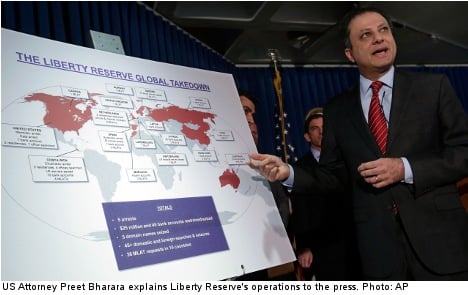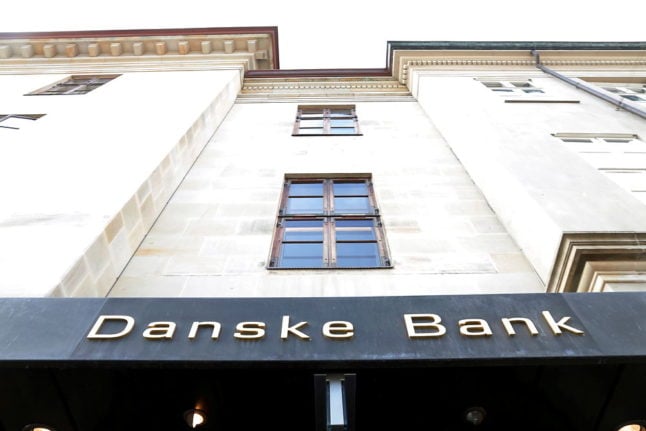“I’m the one who’s authorized the raid,” district prosecutor Ylva Johansson at the International Prosecution office confirmed for The Local.
“We don’t have any information on the actual confiscated material as it’s an American investigation, not a Swedish one.”
The raid was carried out in the Stockholm area last Friday, resulting in the confiscation of a number of servers suspected of playing a role in moving billions of dollars in digital currency around the world.
A Swedish man admitted that he had served as a middle-man in Liberty Reserve’s network for three years.
“It was obviously a system that could be used for money laundering,” the man, who wished to remain anonymous, told the Dagens Nyheter (DN) newspaper.
Prosecutors in the United States unsealed an indictment on Tuesday, alleging the operators of Liberty Reserve were behind a $6-billion criminal money laundering scheme US authorities labelled “the largest international money laundering prosecution in history”.
“As alleged, the only liberty that Liberty Reserve gave many of its users was the freedom to commit crimes – the coin of its realm was anonymity, and it became a popular hub for fraudsters, hackers, and traffickers,” US Attorney Preet Bharara said in a statement.
Founded in Costa Rica in 2006, Liberty Reserve ran a digital currency trading system that boasted over one million users who could transfer money by submitting only a name, e-mail address, and birth date.
Deposits could also be made via third-parties using credit cards, with the deposits then “converted” to Liberty Reserve Dollars or Liberty Reserve Euros, virtual currencies with values tied to actual US dollars or euros.
“Liberty Reserve operated, on an enormous scale, a digital currency system designed to provide cyber and other criminals with a way to launder their profits without leaving a trace,” Acting US Assistant Attorney General Mythili Raman said in a statement.
“The company’s very purpose was to launder its users’ criminal proceeds through the US and global financial system.”
The Swedish man explained to DN that he handled money transfer requests online from his home and that the most common clients were people who wanted to transfer small sums of money abroad as part of fraudulent Ponzi schemes.
“They were regular Svenssons who wanted to be rich,” he explained, adding that Swedes were able to deposit money in his bank account and that he earned a commission for using their money to buy Liberty Reserve digital currency.
The man has previously been investigated by Swedish tax authorities for his virtual currency exchange operations, which have since been shut down.
He admitted to DN that he “knew full well” that Liberty Reserve’s service was used for money laundering.
Sanna Håkansson/David Landes



 Please whitelist us to continue reading.
Please whitelist us to continue reading.
Member comments